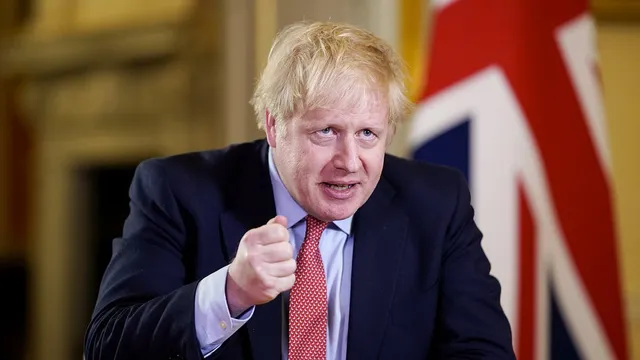
Boris Johnson Questions Effectiveness of Lockdown Measures
2024-09-29 00:00- In April 2020, the UK experienced a dramatic decline in economic activity due to strict lockdown measures.
- Public compliance with these measures was unexpectedly high, resulting in empty streets and a significant drop in new car sales.
- Boris Johnson later expressed uncertainty about the effectiveness of lockdowns in controlling the pandemic, suggesting that natural patterns may have played a larger role.
Express your sentiment!
Insights
During the early stages of the COVID-19 pandemic in April 2020, the UK experienced unprecedented compliance with lockdown measures, leading to a significant decline in economic activity. The government, led by Boris Johnson, initially believed that persuading the public to adhere to strict social distancing would be challenging. However, the reality proved different, as citizens largely followed the stay-at-home orders, resulting in empty streets and a drastic drop in new car sales. Despite the apparent success of these measures, Johnson later reflected on the effectiveness of lockdowns in controlling the virus's spread. He noted that while there was a reduction in deaths and hospital admissions, the pandemic's patterns worldwide suggested that government interventions might have limited impact on the trajectory of a highly contagious disease. This led him to question whether lockdowns were truly decisive in combating the virus or if they merely coincided with natural fluctuations in infection rates. Ultimately, he acknowledged that while lockdowns likely had some effect, he was uncertain about their overall efficacy in managing the pandemic's waves.
Contexts
The COVID-19 pandemic has reshaped the global landscape, revealing deep-seated vulnerabilities in both health and economic systems. As countries implemented lockdowns to curb the spread of the virus, international trade faced unprecedented disruptions, leading to a significant decline in economic activity. By 2021, the adverse effects of the pandemic were particularly pronounced in emerging and developing economies, where income losses exacerbated existing economic fragilities. The toll was staggering, with over six-and-a-half million lives lost to the virus, highlighting the urgent need for effective policy responses. Governments worldwide responded with a range of measures aimed at mitigating the economic fallout. Cash transfers and financial policy tools, such as debt moratoria, were employed to support households and businesses during the initial lockdowns. Central banks lowered interest rates and eased liquidity conditions, allowing financial institutions to continue providing credit. However, these interventions led to a global increase in government debt, raising concerns about long-term sustainability and widening disparities between advanced and emerging economies. As the world began to recover, the economic landscape remained precarious. Unemployment rates soared, and many individuals faced reduced incomes, with half of all Americans reporting significant financial strain. Researchers noted that the negative expectations surrounding the economy hindered the effectiveness of one-time relief measures, suggesting that ongoing support, such as unemployment benefits, would be more beneficial in stimulating recovery. Looking ahead, policymakers face the dual challenge of addressing immediate health crises while laying the groundwork for long-term economic reform. The focus must shift towards strengthening health services and implementing targeted stimulus measures to reignite growth. As the world grapples with the aftermath of the pandemic, the lessons learned will be crucial in building a more resilient global economy.